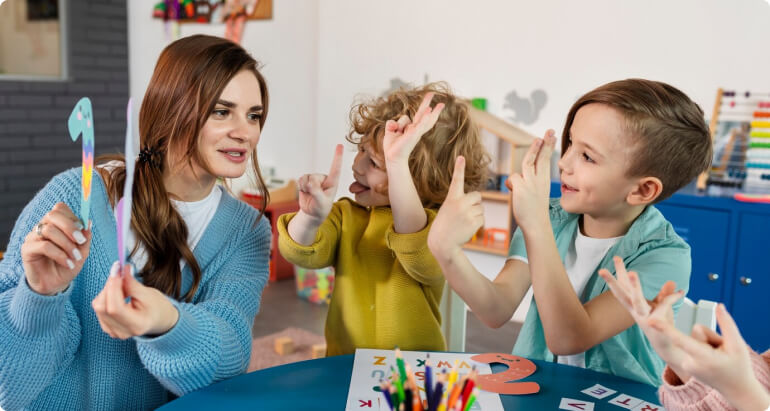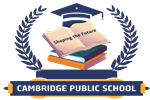
Pre-KG to UKG: Play-Based Learning to Spark Creativity and Curiosity
At Cambridge Public School, our Pre-KG to UKG curriculum is designed to engage young children through play-based learning, fostering both creativity and curiosity in their formative years. This approach focuses on the natural way children explore and understand the world, turning every interaction and activity into a meaningful learning experience.
What is Play-Based Learning?
Play-based learning is an educational approach that uses play as the primary mode of learning. In this method, children learn by engaging in hands-on activities that stimulate their imagination, creativity, and problem-solving abilities. Play helps children make sense of the world around them and builds essential skills in a fun, stress-free environment.
Key Features of Our Pre-KG to UKG Program:
-
-
- Interactive Learning Environment: Our classrooms are designed to be vibrant, engaging, and child-friendly. The learning spaces are filled with age-appropriate toys, games, puzzles, art supplies, and sensory play materials that encourage active exploration. Children are given the freedom to choose activities that interest them, allowing for self-directed learning.
- Focus on Holistic Development: Play-based learning nurtures the whole child, focusing not just on cognitive development but also on social, emotional, and physical growth. Through play, children develop fine motor skills (through activities like drawing and building), language skills (through storytelling and role-playing), and social skills (through group activities and cooperative play).
- Creativity and Imagination: Creative activities like art, music, and role-playing are integral parts of our Pre-KG to UKG curriculum. Children engage in imaginative play, such as pretending to be shopkeepers, doctors, or chefs, which helps them explore different perspectives and express their ideas freely. These activities foster innovation, flexibility, and abstract thinking, which are essential skills for lifelong learning.
- Inquiry-Based Learning: We encourage children to ask questions and explore their surroundings. Teachers guide this inquiry-based learning by providing opportunities for children to experiment, discover patterns, and solve problems. Whether it’s building a tower with blocks or figuring out how water flows in a water table, children develop critical thinking and problem-solving skills through these fun activities.
- Development of Language and Communication: Through storytelling, rhymes, and group discussions, we emphasize the importance of language development. In our play-based environment, children naturally develop communication skills by interacting with their peers and teachers. These interactions build a strong foundation for literacy and language acquisition in future grades.
- Physical Development and Motor Skills: Physical play is a critical component of our Pre-KG to UKG program. Activities like running, jumping, climbing, and playing with balls not only help children build gross motor skills but also contribute to their overall health and well-being. Fine motor skills are enhanced through art and craft activities, such as cutting with scissors, threading beads, or painting.
- Building Confidence and Independence: Play-based learning encourages independence as children are free to make choices, solve problems on their own, and pursue their interests. Teachers act as facilitators, providing support while allowing children to take ownership of their learning. This promotes self-confidence and helps them become independent thinkers.
- Collaboration and Social Skills: Our play-based approach places a strong emphasis on group activities, encouraging children to work together, share ideas, and solve problems as a team. This helps them develop essential social skills like cooperation, empathy, and conflict resolution.
-
A Joyful Learning Experience
Overall, our Pre-KG to UKG program ensures that children learn in an environment that feels like play, which makes learning a joyful and rewarding experience. By integrating play into the curriculum, we prepare children not just for academic success but for a lifelong love of learning, exploration, and discovery.
